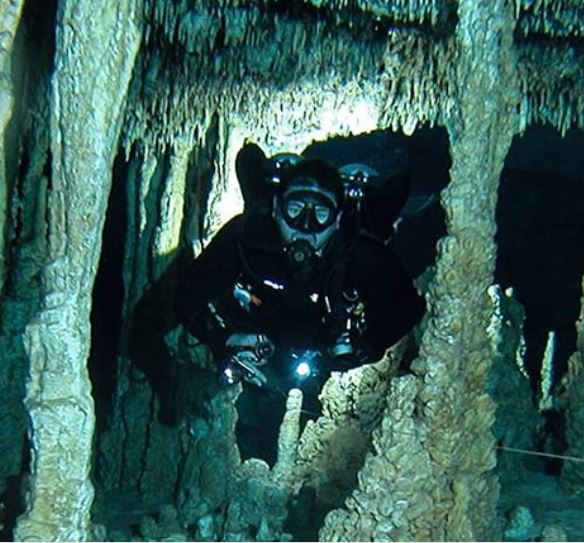Cave Diving
Cave divers everywhere will tell you many stories of the fun, excitement and mystery they experience while diving in caves around the world. Cave Diving is one of the last frontiers of the sport of diving, going where very few humans are able to go or ever see. Florida is the perfect place to learn about cave diving. With waters at a constant 72*F, year-round warm weather and many dozens of caves to explore, you will never grow tired of exploring the miles of cave passage under our state. Stuart Scuba offers those who have completed their Cavern certification and want to see what’s around the next corner the opportunity to do so. Your training builds off the foundation of skills learned in Cavern and actually puts them to use. We will teach you safety, conservation and much more as you explore further into the earth. Much of what you learn will be able to be used in cave systems around the world.
Availability: Contact us for booking information
Who this course is for:
- The certified TDI Introductory Cave Diver (or equivalent), who has interest in moving forward with overhead environment diving and expanding their diving techniques, capabilities, range, and more!
Course prerequisites:
- Minimum age 18
- Minimum certification of TDI Introductory Cave Diver, or equivalent
- If decompression dives are to be conducted in training, the student must be TDI Decompression Procedures certified or equivalent, or this training may be conducted concurrently. If courses are taught concurrently, ALL requirements for both courses must be met and registrations processed upon completion.
What you can expect to learn:
The TDI Full Cave Diver Course takes an in-depth look at all of the following and more.
- Standard cave diving policies
- Gas management procedures and management to include dissimilar volumes
- Psychological considerations of cave diving
- Equipment considerations including:
- Cylinder options
- Regulator options
- Buoyancy compensator/harness options
- Proper weighting
- Reel options
- Equipment configurations
- Communication (light and hand signals)
- Swimming techniques
- Body posture/trim
- Buoyancy control
- Line following
- Propulsion (finning) techniques
- Physiology
- Breathing techniques
- Stress management
- Decompression theory and its application to cave diving
- Cave environment
- Conservation
- Problem solving
- Emergency procedures
- Equipment failure
- Silting conditions
- Accident analysis
- Cave diving etiquette
Required skills you will have to demonstrate include:
- Properly deploy a guideline
- Properly use directional and non-directional line markers
- Properly follow a guideline with eyes open and closed (simulating loss of visibility)
- Air share with a buddy with eyes open, following a guideline
- Air share with a buddy with lights off and eyes closed, using touch contact while following the guideline
- Remove and replace mask while in contact with the guideline
- Demonstrate conservation, awareness, and back referencing techniques
- Demonstrate light/hand signals and touch contact
- Demonstrate anti-silting techniques
- Simulate a primary light failure and use back up light to exit the cave
- Demonstrate lost line and lost diver drills
- Demonstrate use of reels to perform jumps and gaps required in circuits and traverses to maintain a continuous guideline to open water
- Demonstrate buoyancy control, proper trim, and propulsion techniques
- Demonstrate proper stress analysis (detection and management)
- Demonstrate specialized propulsion techniques in varying types of flow
- Equipment check and matching
- Demonstrate adequate predive planning
What’s in it for you?
Upon successful completion of this course, graduates may engage in cave diving activities without direct supervision so long as the following limits are adhered to:
- The diving activities approximate those of training
- Planned dives do not exceed diver’s current certification level
- Penetration is limited to the “rule of thirds,” to a maximum depth of 40 metres/130 feet
- Diver must maintain a continuous guideline
- Proper cave diving equipment must be used
- Safety and decompression stops as appropriate or necessary (if trained as TDI Decompression Diver or equivalent)
TDI Full Cave Diver minimum requirements:
- Satisfactorily complete the TDI Cave Diver course written examination with a 80% passing grade, followed by 100% remediation by the Instructor
- Perform all land drills and cave dive requirements efficiently
- Demonstrate mature, sound judgment concerning dive planning and execution
- Maintain an appropriate level of awareness and respect for the environment
- Log all training dives





